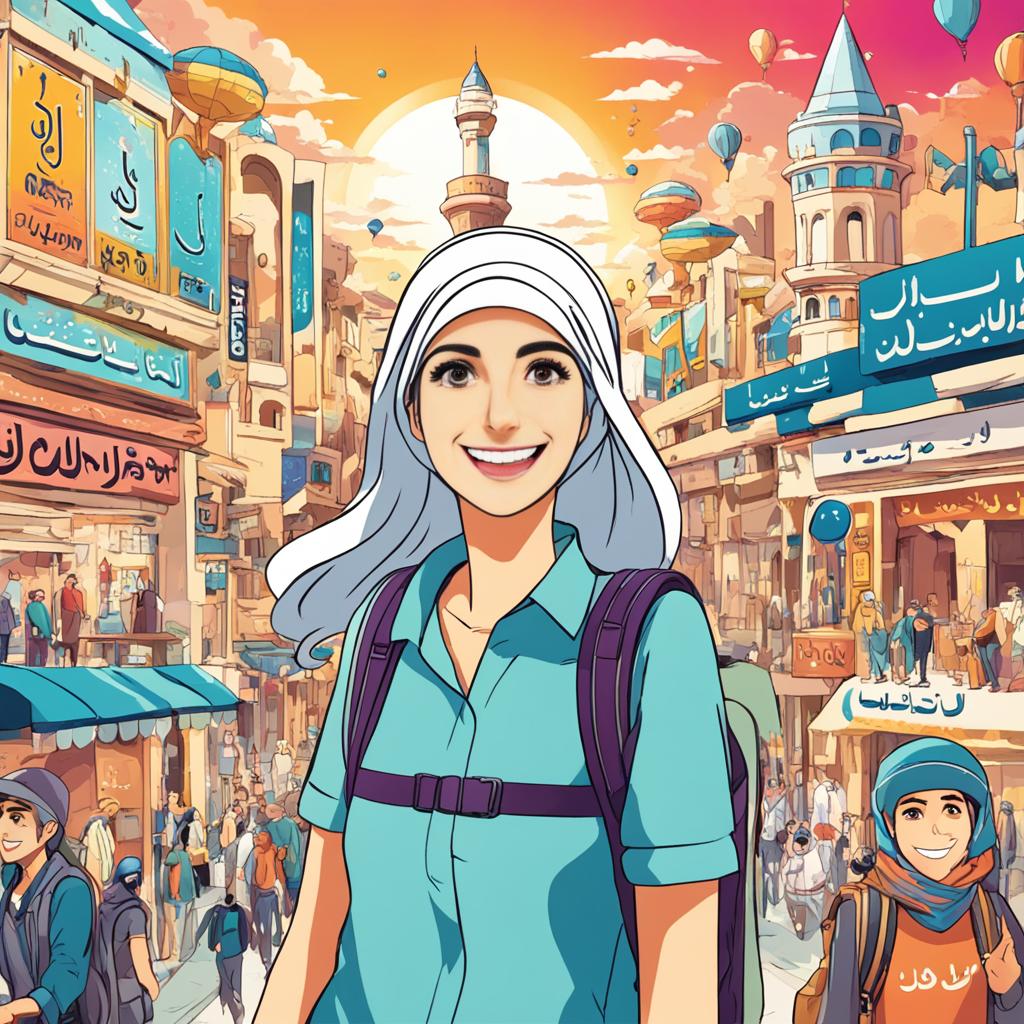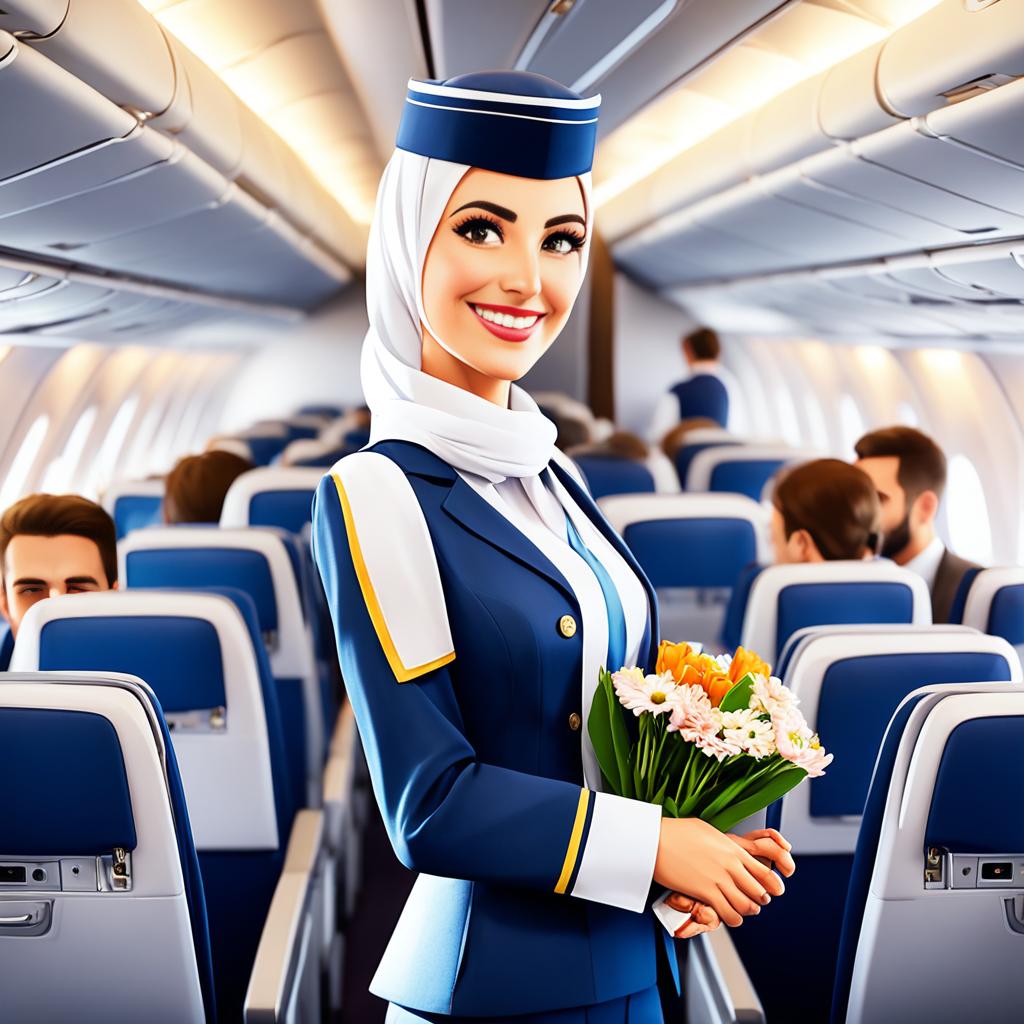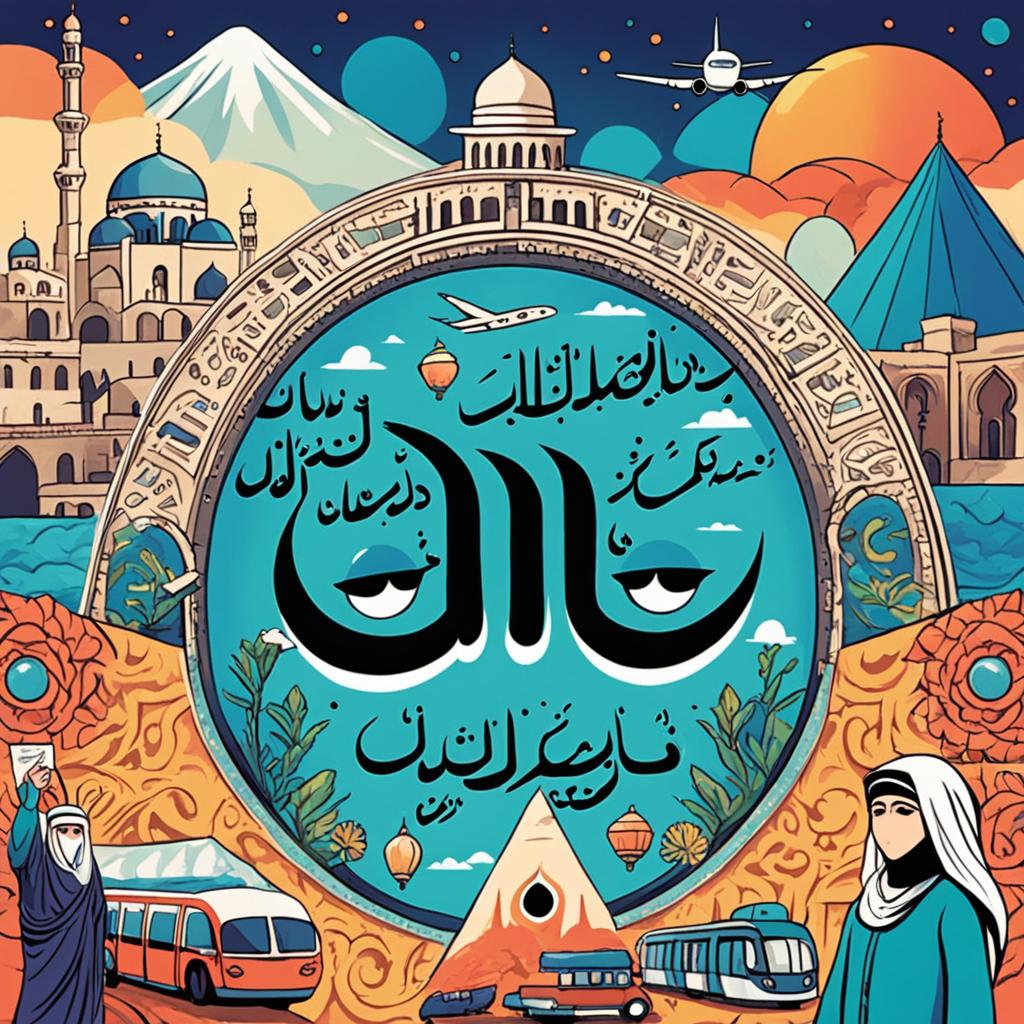When traveling in an Arabic-speaking country, have you ever wondered what to say to wish someone a safe journey? It turns out there are specific phrases that are commonly used to convey this message. So, what are these Arabic phrases that express good wishes for a safe and enjoyable trip? Let’s explore them in this article.
Modern Standard Arabic – رِحلَة سَعيدَة (riHlah saʻeedah)

In Modern Standard Arabic, the widely understood phrase for wishing someone an enjoyable journey is “رِحلَة سَعيدَة” (riHlah saʻeedah) which translates to “Happy Trip”. This phrase can be used in various Arabic-speaking countries.
When you want to express well wishes for someone’s journey in Modern Standard Arabic, you can use the phrase “رِحلَة سَعيدَة” (riHlah saʻeedah). This is a common and widely understood phrase that conveys the idea of a happy and enjoyable trip. Whether you’re saying goodbye to a friend or family member, or sending off a colleague or business associate, using this expression will show your goodwill and positivity.
| Phrase | Translation |
|---|---|
| رِحلَة سَعيدَة | Happy Trip |
Egyptian Arabic – تِروحوتيجيبِالسَّلامَة (tirooH w teegee bissalaamah)

In Egypt, a common phrase used to wish someone a safe journey is “تِروحوتيجيبِالسَّلامَة” (tirooH w teegee bissalaamah) which means “Come and go safely!”
If you are on the receiving end of this expression, your reply should be الله يِسَلِّمَك (allaah yisallimak) for a male or الله يِسَلٍّمِك (allaah yisallimik) for a female.
| Expression | Translation |
|---|---|
| تِروحوتيجيبِالسَّلامَة (tirooH w teegee bissalaamah) | Come and go safely! |
| الله يِسَلِّمَك (allaah yisallimak) | May God protect you (male) |
| الله يِسَلٍّمِك (allaah yisallimik) | May God protect you (female) |
Middle Eastern Arabic – May God have mercy on you and may you arrive safely (اللهيحميكوتوصَلبِالسَّلامَة / HafeeDHaak allaah) and May God keep you safe (حَفيظَك الله / HafeeDHaak allaah)
In other parts of the Middle East, especially among more religiously inclined individuals, there are different phrases used to wish someone a safe journey. These phrases reflect a deep-rooted belief in the power of God’s protection and mercy. Here are two common expressions:
- “May God have mercy on you and may you arrive safely” (اللهيحميكوتوصَلبِالسَّلامَة / allaah yHmeek w tooSal bissalaamah)
- “May God keep you safe” (حَفيظَك الله / HafeeDHaak allaah)
These phrases not only convey good wishes for a safe journey but also reflect a deep sense of reliance on God’s protection and care. They are often used to bid farewell to loved ones embarking on a trip or to offer prayers for their safe return.
Whether you hear these expressions in the bustling streets of Cairo, the historic markets of Istanbul, or the tranquil deserts of Saudi Arabia, they demonstrate the importance of faith and spirituality in Middle Eastern culture.
Next, we’ll explore another phrase commonly used by Arabic-speaking stewardesses when passengers are deboarding an aircraft.
Arabic-speaking stewardess phrase – رافَقَتكالسَّلامَة (raafaqatk issalaamah)

When you are deboarding an aircraft, you may hear the Arabic-speaking stewardess say “رافَقَتكالسَّلامَة” (raafaqatk issalaamah) as a way to bid you farewell. This expression, which literally translates to “May safety accompany you,” is commonly used when saying goodbye to passengers on any vessel.
As an Arabic-speaking stewardess, their primary concern is your safety and well-being throughout the journey. By using this phrase, the stewardess is conveying their wishes for your continued safety and a smooth and secure journey ahead.
Air travel can often be a source of anxiety and stress, but the Arabic-speaking stewardess’s use of this phrase aims to instill a sense of reassurance and comfort. It serves as a reminder that the crew is committed to ensuring your safety and that they wish you a safe arrival at your destination.
Next time you hear the phrase “رافَقَتكالسَّلامَة” (raafaqatk issalaamah) from an Arabic-speaking stewardess, take a moment to appreciate their well-wishes and the efforts they put into making your journey as safe and enjoyable as possible.
Conclusion
When traveling in Arabic-speaking countries, it is important to be aware of the cultural norms and customs, including the customary phrases used to wish someone a safe journey. In Modern Standard Arabic, you can use the phrase “رِحلَة سَعيدَة” (riHlah saʻeedah) to express your good wishes for a happy trip. In Egypt, the common phrase “تِروحوتيجيبِالسَّلامَة” (tirooH w teegee bissalaamah) means “Come and go safely!” These expressions show respect and goodwill towards your travel companions.
For those in more religiously inclined areas, you may come across phrases like “May God have mercy on you and may you arrive safely” (اللهيحميكوتوصَلبِالسَّلامَة / allaah yHmeek w tooSal bissalaamah) or “May God keep you safe” (حَفيظَك الله / HafeeDHaak allaah). These phrases reflect the importance of religious faith and serve as a heartfelt wish for a safe journey.
Remember that these phrases may vary across different Arabic-speaking regions, so it’s essential to adapt them accordingly. Using these Arabic phrases for a safe journey not only shows respect for the culture and traditions of the country you are visiting but also enhances your interactions with locals and fosters a sense of connection during your travels. So, next time you’re embarking on a journey in an Arabic-speaking country, don’t forget to wish your fellow travelers a safe and enjoyable trip using these meaningful expressions.


